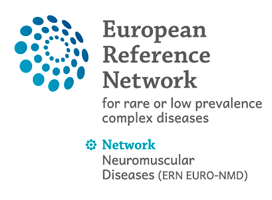06 May 2017
European consensus for starting and stopping enzyme replacement therapy in adult patients with Pompe disease
Authors:
A. T. van der Ploeg, M. E. Kruijshaar, A. Toscano, P. Laforêt, C. Angelini, R. H. Lachmann, S. I. Pascual Pascual, M. Roberts, K. Rösler, T. Stulnig, P. A. van Doorn, P. Y. K. Van den Bergh, J. Vissing, B. Schoser, On behalf of the European Pompe Consortium
Background and purpose
Pompe disease is a rare inheritable muscle disorder for which enzyme replacement therapy (ERT) has been available since 2006. Uniform criteria for starting and stopping ERT in adult patients were developed and reported here.
Methods
Three consensus meetings were organized through the European Pompe Consortium, a network of experts from 11 European countries in the field of Pompe disease. A systematic review of the literature was undertaken to determine the effectiveness of ERT in adult patients on a range of clinical outcome measures and quality of life. A narrative synthesis is presented.
Results
Consensus was reached on how the diagnosis of Pompe disease should be confirmed, when treatment should be started, reasons for stopping treatment and the use of ERT during pregnancy. This was based on expert opinion and supported by the literature. One clinical trial and 43 observational studies, covering a total of 586 individual adult patients, provided evidence of a beneficial effect of ERT at group level. At individual patient level, the response to treatment varied, but factors associated with a patient’s response to ERT were not described in many studies. Eleven observational studies focused on more severely affected patients, suggesting that ERT can also be beneficial in these patients. There are no studies on the effects of ERT in pre‐symptomatic patients.
Conclusions
This is the first European consensus recommendation for starting and stopping ERT in adult patients with Pompe disease, based on the extensive experience of experts from different countries.

